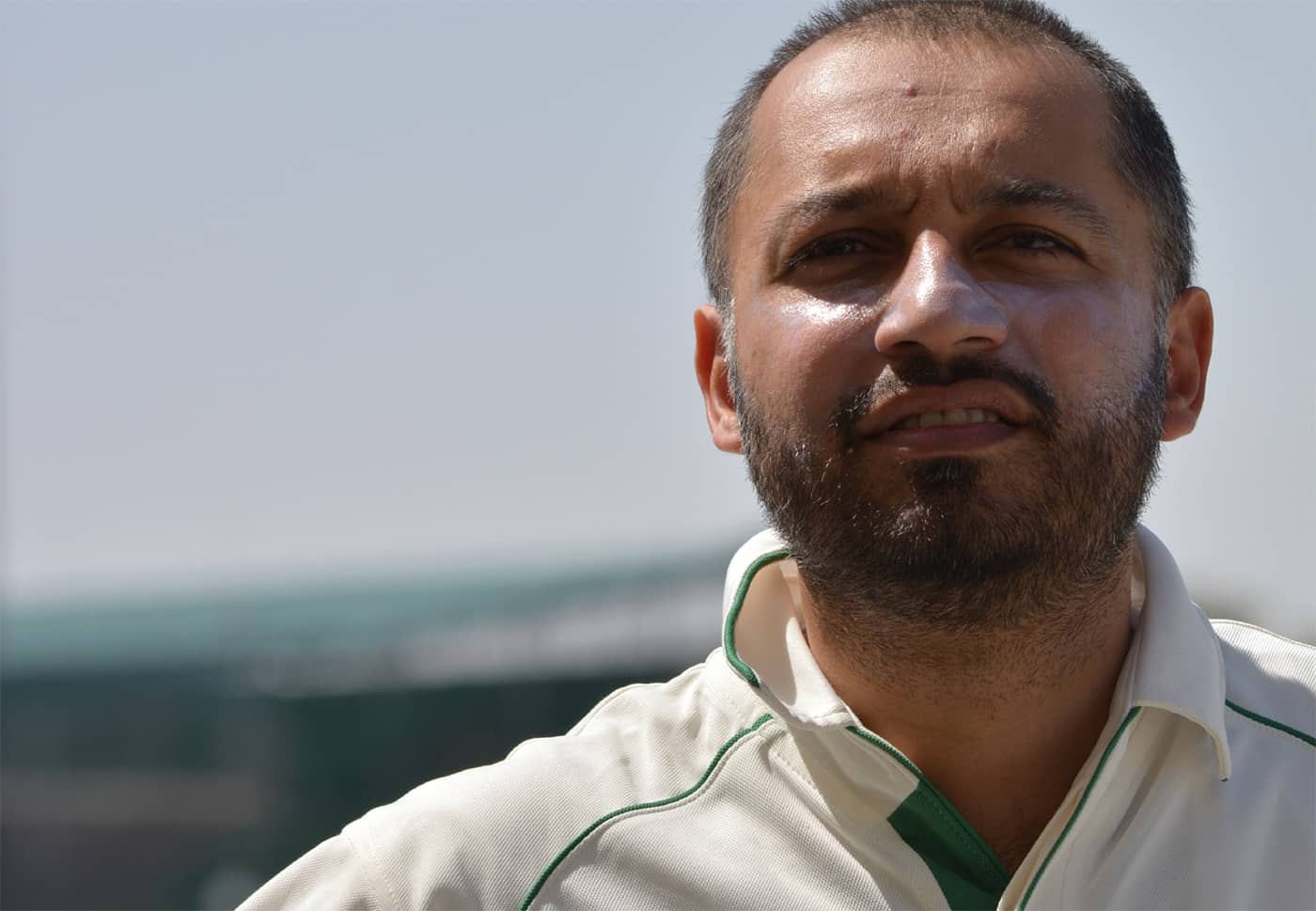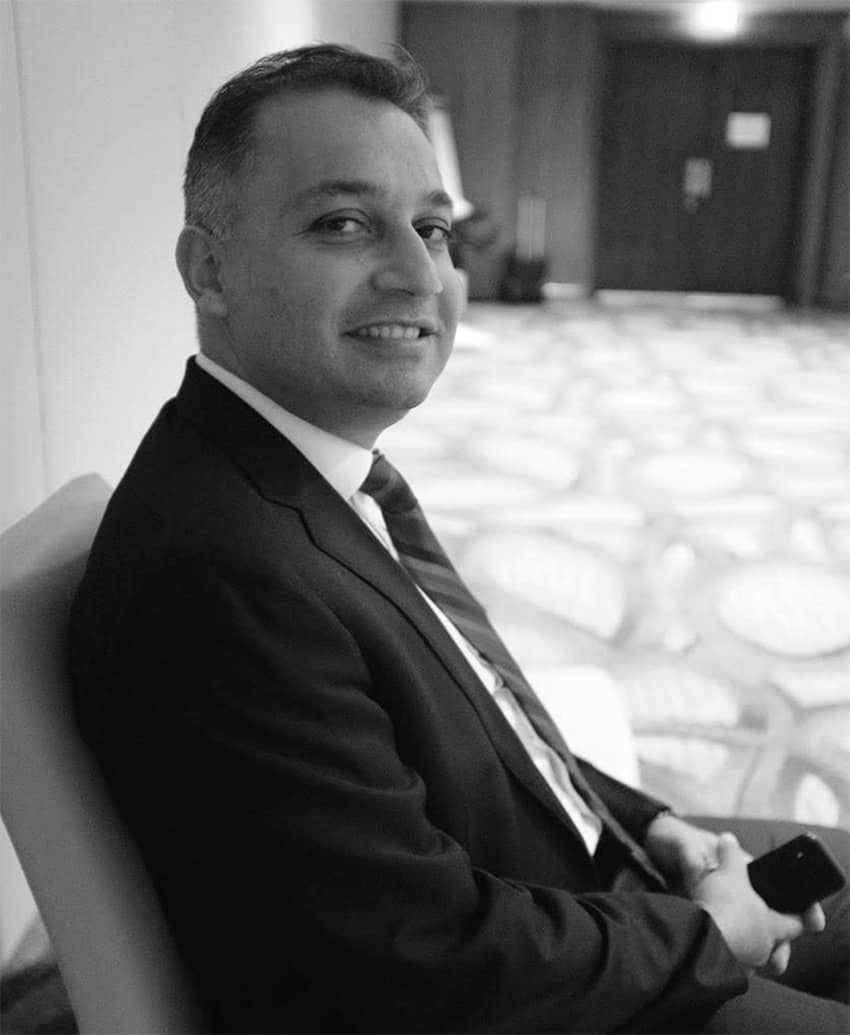Pushing boundaries
13th December 2019 | Nick de Cent
SAP’s Manal Siddiqui discusses cricket, qualification and his career.

Manal Siddiqui has an infectious enthusiasm for cricket and work, these probably being the two things he loves most in the world, aside from his family. Indeed, when pressed, the former under-19 UAE international cricketer jokes: “Cricket is my first love, you know; that’s what I keep telling my wife, ‘You are my second wife; my first wife is cricket.’”
Like many of his SAP colleagues who have participated in the Masters programme, he has spent the majority of his career in sales but these days Siddiqui has a wider remit, leading delivery of premium services with a team of 12 project managers across the Middle East.
You are not there to lead them but to serve them, and the concept of servant leadership comes from two of the greatest leaders that I follow, who are Gandhi and Mandela.
P&L responsibility
“My career has been completely in sales,” he explains. “However, in the middle of the Masters programme, the skills I was showing led management to believe that I could get into a people manager’s role. Basically, I’m running a department called Premium Engagements. It comes under our services division and I have full P&L responsibility. Sales have a dotted line to me and my role is revenue-generating. So, I do have targets – services revenue targets, operating profitability targets, utilization targets, customer satisfaction – but perhaps I have a wider perspective than many other salespeople.”
Unlike many of his generation, Siddiqui made a conscious decision to switch to sales early on in his career, following an initial role as a quality engineer. When the opportunity arose to move into sales and marketing with another company, he took it.
Asked what it is about sales that is so special, he tells Journal “I’ve been into sales for 14 or 15 years, and it’s very fulfilling. There are three things which I love about sales, which really give me a kick: first of all the negotiation itself and then the fact that I’m bringing revenue to the company and this is basically adding fuel to the ignition.

Importance of deal qualification
“The third thing which I realised over the years, and this is only after a certain degree of maturity, is how to qualify an opportunity and how to say no to some opportunities. This is actually really confusing for a salesperson, because you’re always optimistic and you always want to engage yourself, but opportunity qualification is something which I learned and I’m now teaching my other sales team members as well. Since I am the P&L owner, obviously the cost of sale is deducted from my cost centre.”
Siddiqui is a member of the DQB (Deal Qualification Board), an important role in the company where deals are worth in the range of USD $500,000 to $5 million.
Challenging but rewarding
For Siddiqui, as with many other participants, the Masters programme has been challenging but rewarding. The sheer intensity of the programme is tough, especially in terms of maintaining a work-life balance. Family life – and cricket – were the priorities in any spare time left over from a full study programme and a job that involves travelling three or four days a week. Social life with friends was put on hold.
“The SAP Masters programme was a privilege and I am honoured to be part of this top talent programme. I’m really grateful to SAP Digital Business Services (DBS) management for considering me as a future leader.”
Relevant
Just as importantly, the programme is very relevant to participants’ work. Concepts can be taken and immediately applied across a wide range of roles. One example of this is the theme of Siddiqui’s final project, which is highly specific both to his company and the geographic area which he covers. Titled “How to build a culture to boost Saudization based on total motivation factors”, this dissertation focuses on how to provide a culture designed to attract, recruit and retain Saudi nationals in an industry that has traditionally employed expats.
Pushing boundaries on and off the pitch
So has Siddiqui been pushing boundaries other than on the cricket pitch? “I have a team culture which I follow religiously. We have a vision as a team and we have three cultural values. One of them is called ‘demand excellence’. For us, this is such an important value – because whenever there is a promise made to a customer or there is a commitment made to an internal manager, or there is a forecast commitment and you’re running against all odds, that is where you really demand excellence from yourself, where you put in effort.”
He concludes: “It’s not about winning or losing, it’s all about having a growth mindset where effort is considered as a necessity to grow.”
This interview was originally published in Consalia’s Alumni News.



